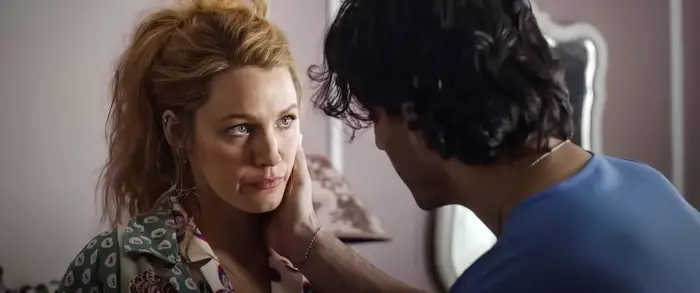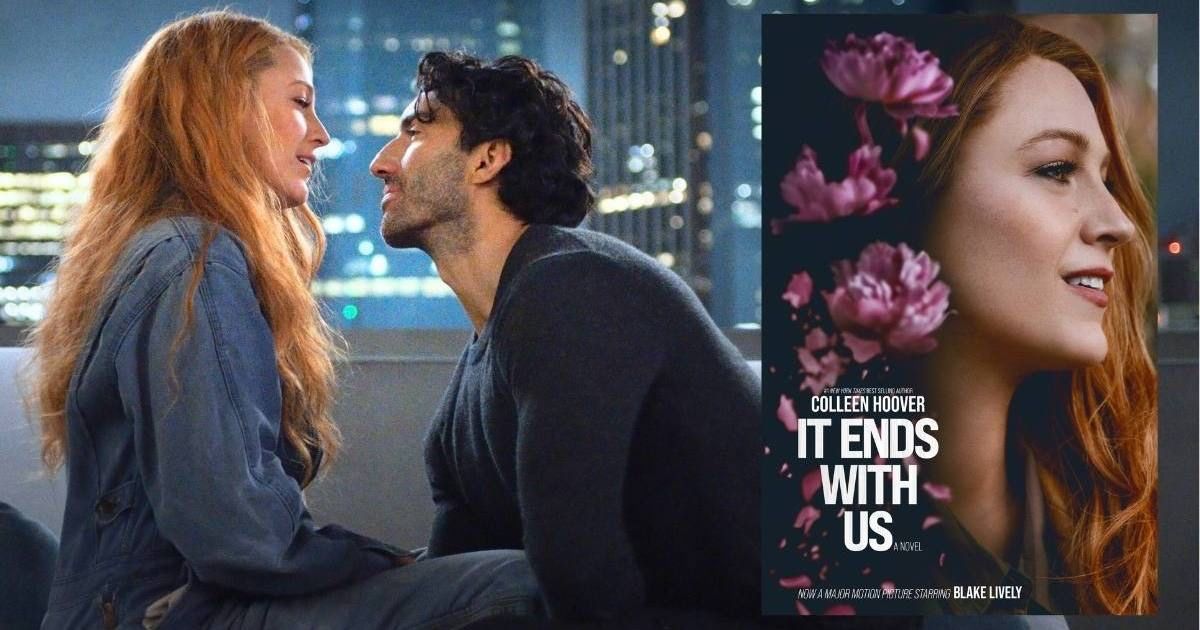Over the weekend, I finally had a chance to see “It Ends With Us”, a film I’d been eager to watch since missing its premiere. The buzz surrounding the movie has been inescapable, with nearly every website plastered with stories about the stars and their so-called “artistic differences.” Blake Lively, along with writer and producer Colleen Hoover, has been accused of promoting the film as a romantic comedy, while Justin Baldoni seems more focused on raising awareness about domestic violence and the resources available to those affected. The fact that Baldoni has brought in the same crisis PR firm used by Depp and Pitt adds another layer of intrigue.
The film had the potential to shine a light on the pressing issue of domestic violence, a subject rarely addressed with the seriousness it deserves in mainstream cinema. This was a moment for the movie to educate audiences on the complexities of abuse, including coercive control and the deep scars left by such experiences. Unfortunately, this opportunity was squandered. Rather than presenting a realistic portrayal of the struggles and healing process involved in escaping an abusive relationship, the film opted for a more conventional Hollywood narrative, complete with a happy ending. This approach risks misleading viewers, suggesting that the answer lies in finding that first love to make it all better rather than seeking the support needed to heal and move forward.
Given the film’s largely female audience, a more nuanced portrayal could have been transformative. It could have emphasised the importance of recognising abuse, seeking help, and understanding that the responsibility for the dysfunction lies solely with the abuser, not the victim. By failing to provide this crucial education, the movie missed a vital chance to raise awareness and empower viewers to take action against domestic violence.
The missed opportunities extended beyond the film itself. The Dublin premiere, attended by a younger generation of influencers, could have been a powerful platform for raising awareness about domestic and gender-based violence. Sadly, there were no representatives from organisations like Women’s Aid or others dedicated to supporting victims and survivors. This absence was especially disappointing given the film’s potential to ignite meaningful conversations about the trauma survivors endure and the long-lasting impact on their lives, and the lives of their children.
With the influencers in attendance, who have the ability to reach a vast audience, the premiere could have been a catalyst for driving awareness among a generation that is statistically most affected by gender-based violence. Engaging these influencers could have amplified the message to a broader audience, particularly young people who desperately need education on recognising unhealthy relationships and the signs of coercive and controlling behaviour.

Why weren’t representatives from organisations like Women’s Aid included in the discussion around It Ends With Us? These are the people on the front lines, supporting survivors of domestic violence every day, accompanying them to court, and helping them find safety. Imagine if Women’s Aid had presented the hard-hitting statistics on violence against women and children, shared resources, or led post-screening discussions. We can’t keep ignoring the elephant in the room. Yes, we all enjoy a happy-ever-after story, but this is the harsh reality for many women and men around the world. It’s time to be brave and address the truth, even if it’s not the most “glamourous” topic.
We must educate the younger generation, the most vulnerable to this scourge, and prevent further violence and deaths. By avoiding the ugly reality of domestic violence, we silence the voices that need to be heard – the survivors who need support and the awareness that could save lives. This movie had the opportunity to do all this and more, yet it missed the mark by romanticising a relationship and overlooking the chance to make a real impact. Awareness is everything, and those experiencing coercive control and domestic violence need to know they are not alone.
By not including advocates with lived experiences, we missed a crucial opportunity to connect with the younger generation in a meaningful way. It’s essential to focus on preventative measures and equip them with the knowledge and tools to identify and avoid abusive relationships. Preaching to older generations, who may have already experienced such trauma, is less effective than educating those still forming their understanding of relationships. This missed opportunity highlights the need for strategic thinking and the responsibility that film makers and promotors have, in their efforts also, to combat domestic and gender-based violence, ensuring they reach and educate those who are most vulnerable. Women’s Aid do a great programme Too Into You, check it out HERE.
Maybe not everyone is aware of the work Women’s Aid do, we cannot just presume everyone knows. These are the people who deal with this issue every day. A presentation of the hard-hitting statistics on violence against women and children, along with resources for where to seek help, would have been powerful. Post-screening discussions could have opened up essential conversations.
The film could have been a vehicle for real change, starting with trigger warnings, domestic abuse support information, and more at screenings. By avoiding the harsh reality of domestic violence, we bury the voices that need to be heard – the survivors and victims who desperately need support and the awareness that could save lives. This movie had the potential to do all that and more, but instead, it chose to romanticise a relationship between a neurosurgeon and a flower shop owner, glossing over the very real and dangerous issue of domestic violence. It’s a missed opportunity to raise awareness and educate those who need it most.
Don’t even get me started on the dynamics of their relationship – him, the neurosurgeon, and her, the flower shop owner. The imbalance is glaring, but we all know that domestic violence doesn’t discriminate. Women from all walks of life, regardless of education or career, suffer the same abuse, trauma, and face the same difficult path to healing. While this may be how it’s written in the book, it’s crucial to show that in reality, every woman can be affected, no matter her background.
It STARTS with us ….
If you have experienced any form of abuse, coercive control, domestic abuse, domestic violence, or sexual violence, please reach out to the following services ….
Women’s Aid – call 1800 341 900
An Garda Siochana – call 999 / 112
Rape Crisis Centre – call 1800 77 8888







